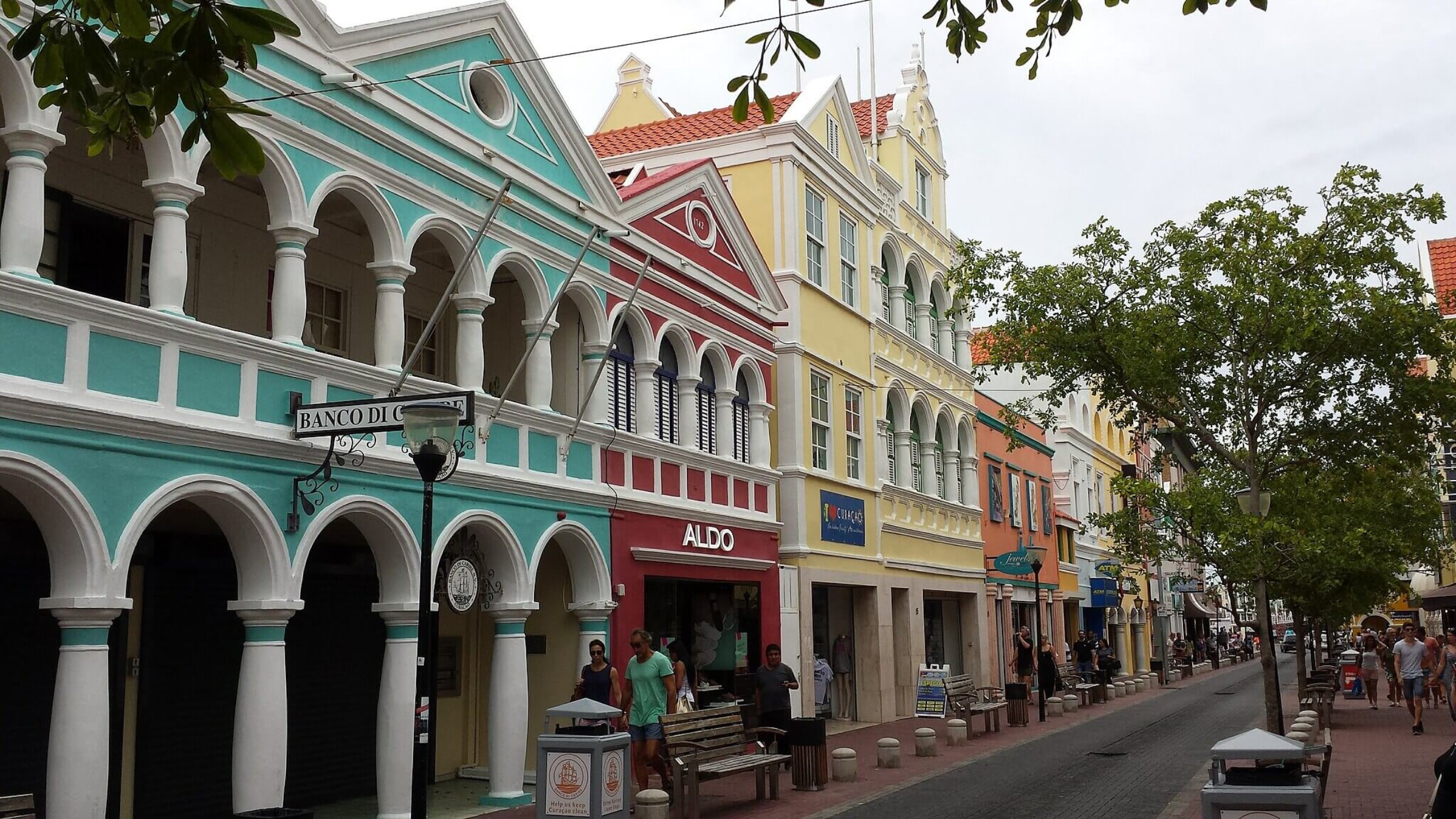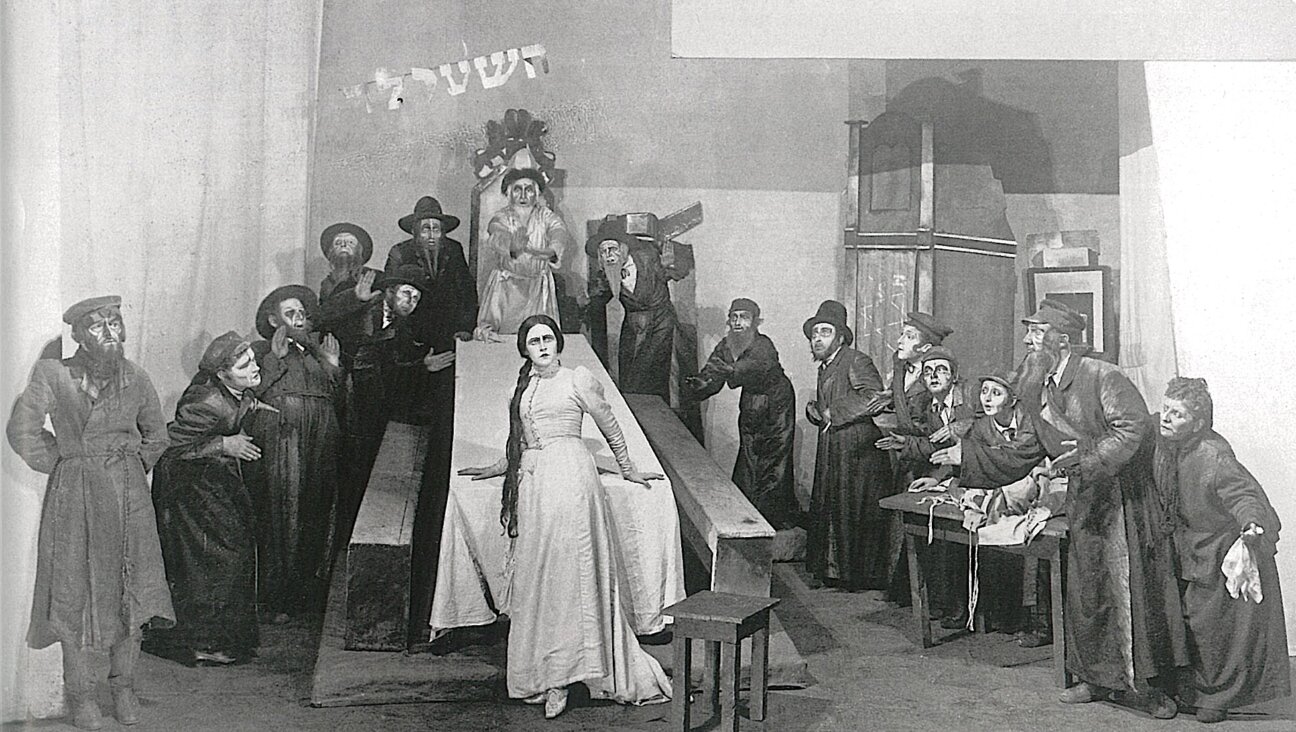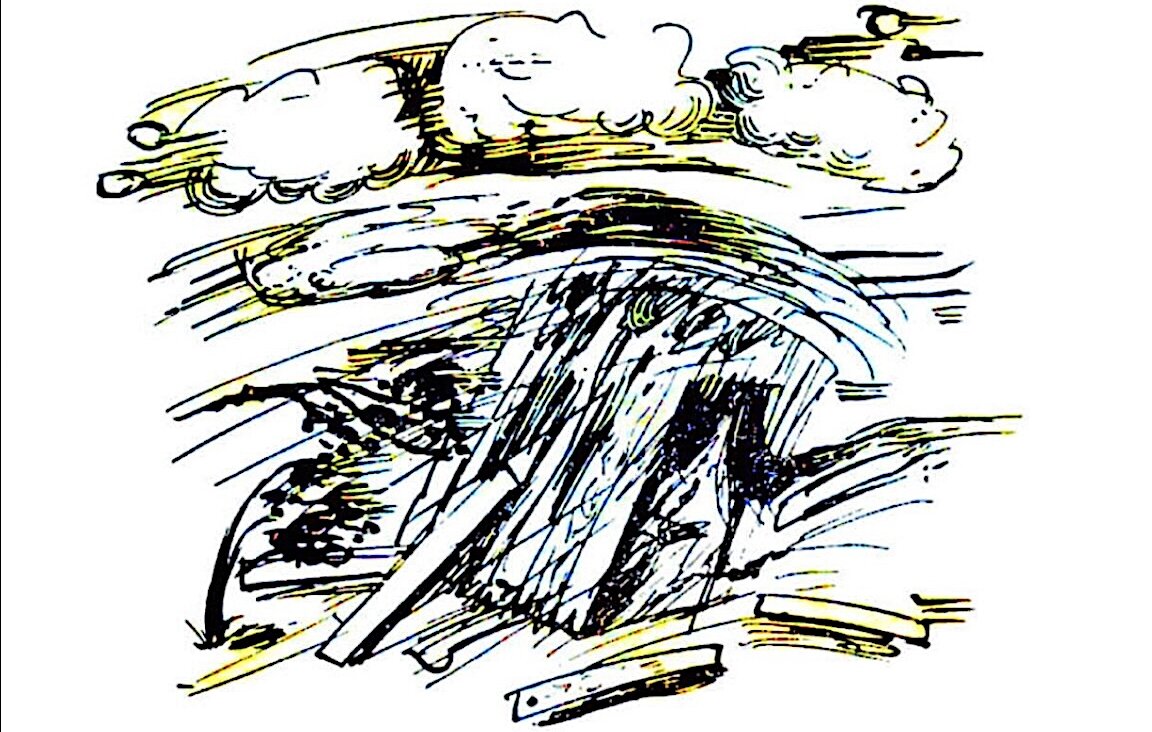Jews have their own creole language — in the middle of the Caribbean
Judaeo-Papiamento is spoken by the Sephardic Jewish community of Curaçao

A street in the historic quarter of Willemstad, Caracao, that started as a hub for Dutch slave traders Photo by Wikimedia Commons
This article originally appeared in Yiddish.
As most Forward readers probably know, Yiddish and Hebrew are by far not the only Jewish languages. Jewish communities around the world once spoke or still speak their own versions of the local languages, such as Ladino, which is derived from Spanish, and Bukhari, which comes from Tajik.
One of the most unique, albeit little-known, Jewish diaspora languages is still spoken in Curaçao, an island in the Caribbean by the coast of Venezuela and a constituent country of the Kingdom of the Netherlands.
Curaçao’s main language is Papiamento. It’s a creole, a mix of two or more languages. But having many loanwords is not enough for a language to be a true creole. Most such languages also have very peculiar grammatical structures, similar to other creoles around the world, but unusual compared to all other languages.
When it comes to the more well-known creole languages such as Tok Pisin of Papua New Guinea, we have a good understanding of how exactly they emerged: the indigenous population learned some basic English words used by the British colonizers in trade and administration and began using them in a way they were used to, following the grammatical rules of the local Austronesian languages.
Traces of Spanish, Portuguese and Dutch
The history of Papiamento is slightly more complicated. Some linguists consider it a Portuguese-based creole that was later influenced by Spanish, while others view Spanish as the primary source language and regard the Portuguese influence as a later layer. Today, the former point of view dominates. Either way, Papiamento contains traces of both Romance languages and Dutch.
The original inhabitants of Curaçao were the Arawak. In 1499, their island was colonized by Spain, but 135 years later the Dutch conquered it and began bringing enslaved individuals from West Africa where a Portuguese-based creole was the local lingua franca at the time. Soon a wave of voluntary immigrants followed. Sephardic Jews came from other Dutch, Spanish and Portuguese colonies in the region to trade and work as interpreters on the island.
These Jews quickly learned the language of the island’s majority, the enslaved Africans, and after a while Papiamento became their own home language. Today virtually all Curaçaoans, including white Dutch people, speak Papiamento, but that has not always been the case. According to the historians, Curaçao’s Sephardim were the first non-African group to pick up the local creole.
Jews added words from Hebrew
Just like all other Jewish communities in various countries, the Curaçao Jews began changing the local language, adding loanwords from Hebrew and creating a new dialect or ethnolect. As the linguist Neil G. Jacobs writes, the phonetic appearance of Hebrew and Aramaic words used in Curaçao demonstrates their Sephardic origin.
For example, משפּחה ‘family’ became mishpakha (not mishpokhe) and פּנים ‘face’ is panim (not ponem). That being said, the rule has its exceptions: רחמנות ‘mercy’ is pronounced as rakhmones – the accented vowel o and the ending es clearly speak of an Ashkenazi influence.
The Hebrew words that are mostly used in religious contexts are not the only difference between the speech of the Curaçao Jews and the “general Papiamento” spoken by everyone else on the island. Jacobs mentions varying stylistic preferences. When Papiamento speakers want to sound more formal or eloquent, they tend to use “pure,” non-creolized forms of words taken directly from Spanish or Portuguese. This is true of all Curaçaoans, but the choice of these languages varies between the ethnoreligious communities. Non-Jewish islanders generally prefer Spanish as the literary reference language, while the local Sephardim use more loanwords from Portuguese and French.
Judaeo-Papiamento is now under threat of extinction
Some words in the Jewish ethnolect of Papiamento differ from the general language regardless of style and context. In many cases, the Jewish forms are closer to the European source languages. The word for dignitary is dignitario in Spanish and Portuguese and sounds exactly the same in Judaeo-Papiamento, whereas non-Jewish Curaçaoans say dignatario – with a different vowel in the middle. One more example is the word that the Curaçao Jews pronounce as granmersi and their non-Jewish neighbors as gremesi. It comes from French where it means “many thanks” but has a completely different meaning in both versions of Papiamento: It is a verb that means “to live on another’s expense.”
The more European-like forms of these words may be explained by decreolization, the process of a creole vernacular becoming closer to its original source language. In post-colonial contexts, this usually happens when a creole-speaking community gains access to education, and as a result — more exposure to the written language of the colonizing society perceived as correct and prestigious. In the case of Curaçao’s Sephardim, it might have something to do with their reading of old books and keeping in touch with Jewish communities in other Romance-speaking countries.
Just like most Jewish languages besides Hebrew, Judaeo-Papiamento is under threat of extinction. The processes of assimilation, secularization and globalization have caused the younger generations of the Curaçao Jews to switch to the general variety of the language. Thankfully, Judaeo-Papiamento has been thoroughly described by the local Sephardic writer and sculptor May Henriquez. Even if it dies as a spoken language, it will live on in her books that give us an insight into the speech, history and culture of this little-known Jewish community.
A message from our CEO & publisher Rachel Fishman Feddersen

I hope you appreciated this article. Before you move on, I wanted to ask you to support the Forward’s award-winning journalism during our High Holiday Monthly Donor Drive.
If you’ve turned to the Forward in the past 12 months to better understand the world around you, we hope you will support us with a gift now. Your support has a direct impact, giving us the resources we need to report from Israel and around the U.S., across college campuses, and wherever there is news of importance to American Jews.
Make a monthly or one-time gift and support Jewish journalism throughout 5785. The first six months of your monthly gift will be matched for twice the investment in independent Jewish journalism.
— Rukhl Schaechter, Yiddish Editor






















